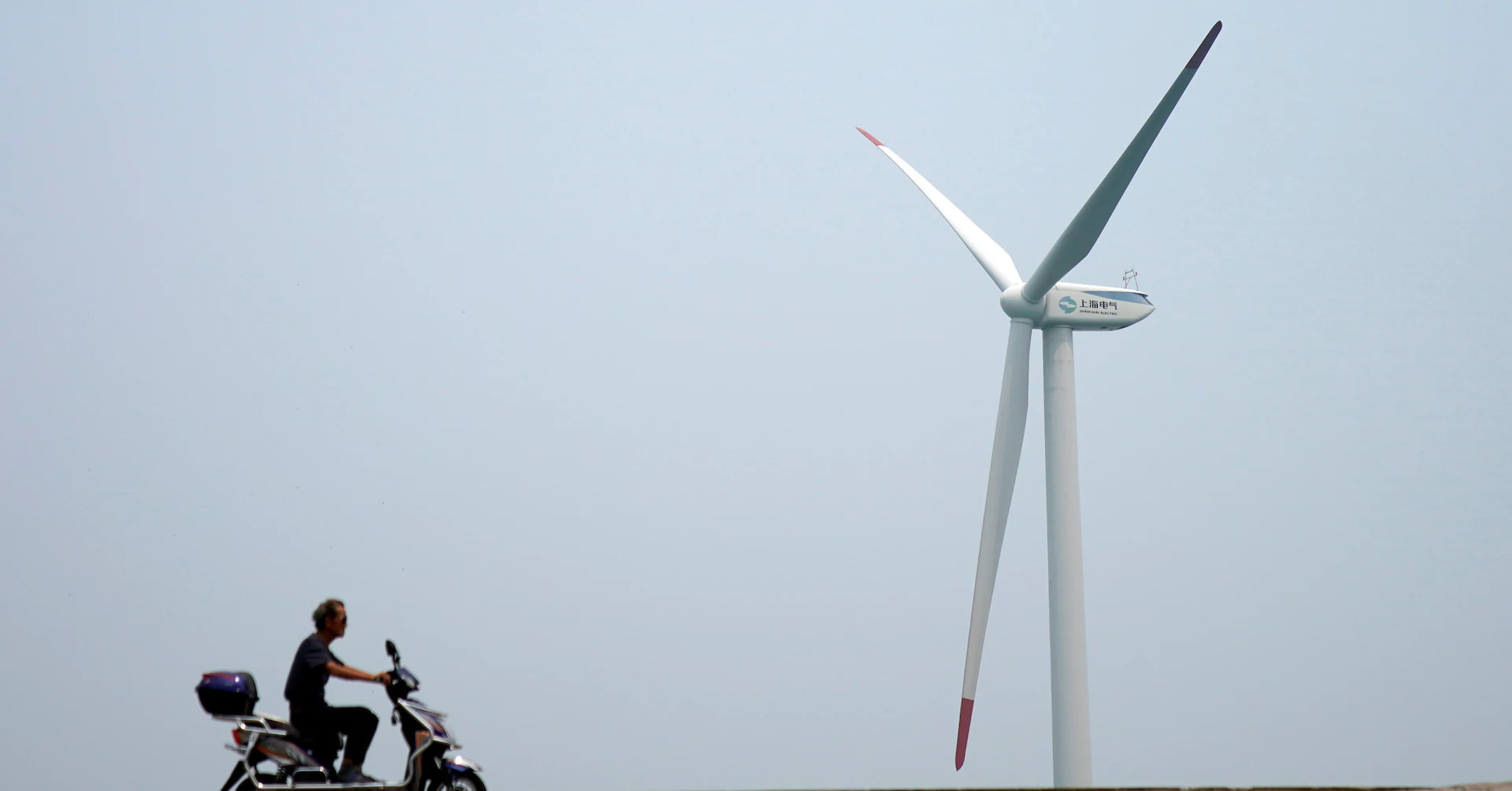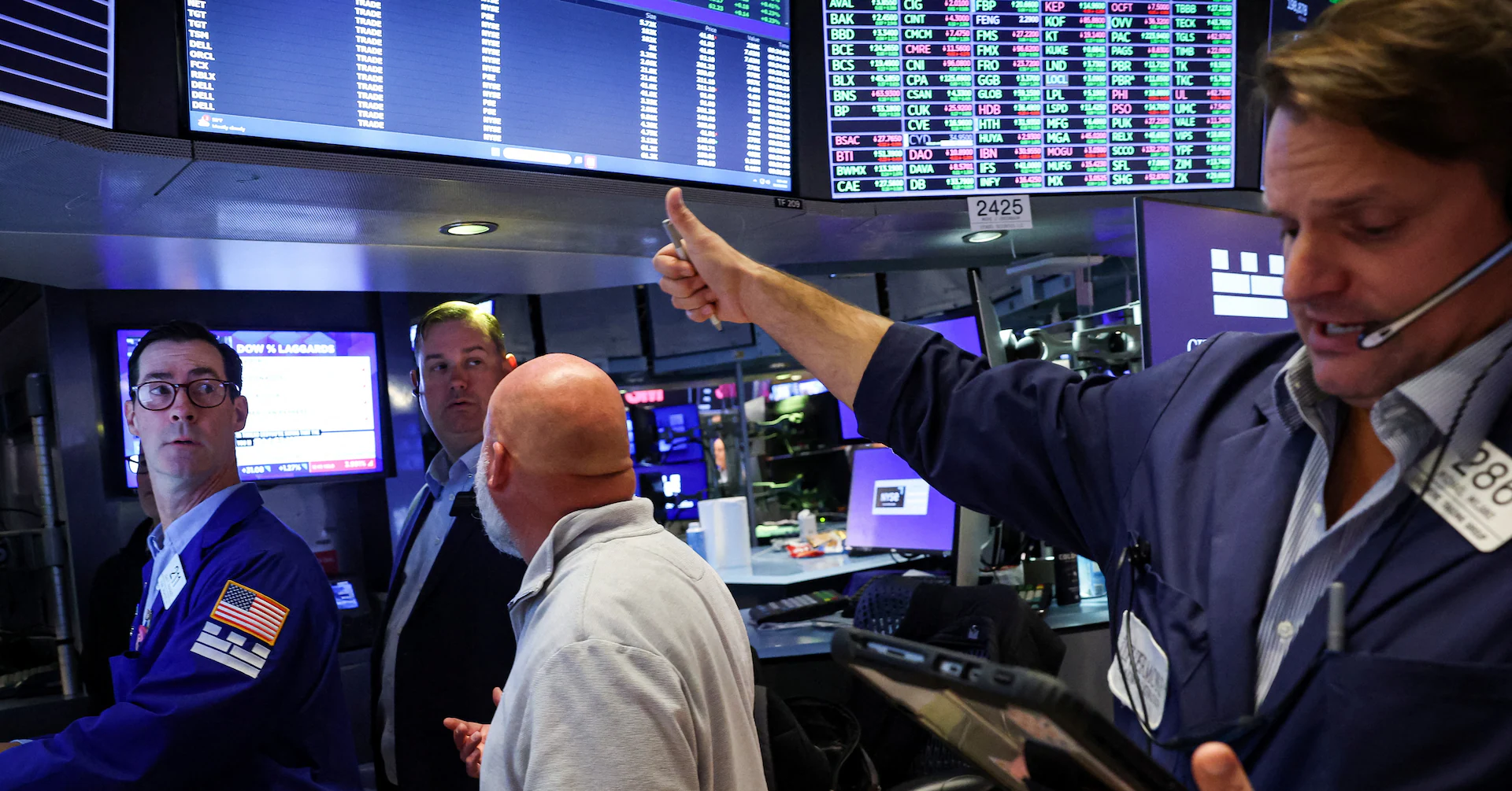Copyright Reuters

Summary US Paris Agreement withdrawal creates leadership vacuum for climate stability China dominates clean energy supply chains and files three times more patents China added 21GW new coal capacity in first half of year, highest since 2016 Climate target disappoints: only 7-10% GHG reduction from undefined baseline Climate finance pressure mounting on China to contribute alongside developed nations November 4 - Can China lead on climate? The answer largely depends on what a “climate leader” means. In early September, Chinese president Xi Jinping announced the country’s plan to increase its collaboration with nine other countries in three crucial fields: energy, green industry and digital economy. Xi also launched two renewable programmes that will see at least 10 gigawatts (GW) of solar panels and 10GW of wind turbines installed in these countries – all situated in Asia and eastern Europe – over the next five years. Xi’s recent speech shows that China, the world’s largest greenhouse gas (GHG) emitter, is strengthening its clean-energy ties with other developing countries, says Belinda Schape, a China policy analyst at the Centre for Research on Energy and Clean Air (CREA), a Helsinki-based think-tank. Over the past few years, Beijing has set up multiple official platforms to promote climate actions and develop renewable infrastructure in Southeast Asia, the Middle East, Africa and Latin America. But when the country announced its climate targets through to 2035 in a highly anticipated document to the United Nations in September, the results disappointed, with China only targeting to cut its greenhouse-gas emissions by 7-10% from their peak level – an undefined baseline instead of a specific year or volume. (China has announced a target year for peaking its carbon emissions, but not for GHGs.) China missed a chance to deliver real leadership, says Kate Logan, director of China Climate Hub and climate diplomacy at the U.S.-based think-tank Asia Society Policy Institute. The debate around China’s leadership comes as the world’s fight against climate change stands at a crossroads. The Paris Agreement turns 10 this December, but the United States – the world’s largest emitter in history – has applied to withdraw from the legally binding treaty for the second time, dealing a blow to the global pursuit to limit temperature rises to within 1.5 degrees Celsius. There are also concerns that the U.S. may pull out of the United Nations Framework Convention on Climate Change (UNFCCC) – the founding treaty of the U.N. climate talks – altogether, potentially pushing the world’s climate fight into uncharted waters, according to analysts. Stability is crucial to help the world navigate through the uncertain situation, says Byford Tsang, a senior policy fellow at the European Council on Foreign Relations, an international think-tank. “In a world where we are more worried about minute-by-minute (social media) activity by the U.S. president, having a country or a set of countries that are committed to something longer term is important for global governance,” he says. There is a need to ensure other countries don’t follow suit, says Sun Yixian, a senior lecturer specialising in environmental politics at the University of Bath in the UK. One of the biggest challenges is that there is no central authority to demand what countries do, or to hold them responsible if they fail to act, Sun explains. It is important that some major countries can help guide the world in the right direction, he adds. “China, as a new global power with a strong commitment to climate action, has the potential to play that role.” But climate leadership is difficult to define. For Kim Vender, author of the book China and Climate Leadership, it depends on “who’s telling the story”. “For a long time, industrialised countries were understood to be taking the lead because they were the Annex One parties,” Vender says. Annex One is a group of 43 mostly developed countries identified by UNFCCC to take the lead in “modifying longer-term trends” in human-caused emissions. China is not on the list, but its emissions have grown rapidly since the turn of the century. “China is in this uncomfortable spot of being in the category of developing countries, but also being expected to lead,” Vender says. That expectation largely comes from industrialised countries, she adds. “China’s emphasis is not on climate ambition, but implementation and action,” says Tsang of the European Council on Foreign Relations. The difference is best reflected by a statement given by China’s then climate envoy, Xie Zhenhua, at COP26: “The most important thing is not setting targets, but taking actions. Shouting slogans alone is not enough.” If other countries and the international society want to encourage China to lead, they should adjust their expectations, says Yao Zhe, a Beijing-based global policy advisor at Greenpeace East Asia. "[They] may need to be more pragmatic and not apply the same definition they used for Europe and the United States on China,” Yao says. Experts point out that China is already a global leader when it comes to deploying clean energy. The country has been building solar and wind farms at breakneck speeds and will be “striving” to bring total capacity to 3,600 gigawatts by 2035. China dominates the supply chains of key clean-energy equipment, from solar panels to electric vehicles. It is also filing three times more clean-tech patents than the rest of the world combined, according to analysis by Ember, a UK-based energy think-tank. “China is now the main engine of the global clean energy transition,” says Yang Muyi, an analyst at Ember. China’s massive investments in clean energy have pushed down the share of fossil fuels in its energy system over the past decade, according to Ember. CREA’s analysis shows that China’s carbon emissions dropped by 1.6% in the first half of 2025 compared with the same period last year as a result. Beijing is also fast expanding its green influence through its own diplomatic channels. For example, the Forum on Africa-China Cooperation, which promotes partnership between China and African countries, launched the “Africa Solar Belt” programme last year. It will see Beijing provide around $14 million in public funds between 2024 and 2027 to supply solar power systems to 50,000 African households, according to the World Resources Institute. China’s strong push has helped the world bring down the prices of clean technologies and accelerated the transition away from fossil fuels, Schape of CREA says, a form of leadership that “is something very concrete, very measurable and very economically beneficial”, she emphasises. Given its clean-energy dominance, many researchers say the country should be more ambitious with its climate targets, known as its Nationally Determined Contribution. “China should reflect and consider (strengthening) its NDC if it aims to take the role as a global climate leader seriously,” says Nico Bauer, a scientist at the Potsdam Institute for Climate Impact Research in Germany. He notes that the target it submitted in September would require “little to no extra effort” to achieve and falls short of a “reasonable contribution” by the country. One big headache for Beijing is what Schape calls China’s “coal conundrum”. The country accounted for 93% of the new coal power capacity that broke ground globally last year, according to CREA. Between January and June this year, it added 21GW of new coal power capacity to its already enormous fleets, the highest amount for the first half of a year since 2016, the think-tank found. China says that it is building new coal power plants as backup power sources to ensure energy security, but Schape thinks it would be “really difficult” for other countries to recognise a climate leader that is still expanding its coal power fleet unless there is “a clear assurance that this is going to change very soon”. Climate finance is another issue. China may face more pressure to officially provide money to climate-vulnerable countries – an obligation for wealthy countries on the Annex One list. Beijing has been working with other developing countries to hold those rich nations responsible, but some island nations have called on China to join developed nations and also pay. In Tsang’s view, one of the most critical questions China has to answer to be deemed a climate leader is whether it is going to continue its strategy of exporting its oversupply of cheap solar panels, batteries and electric cars to the world. “China likes to talk about the economic pie of clean tech, and that it is actually very big,” Tsang says. But if China resists investing outside of its border and – more importantly – sharing its technologies and knowhow, then many countries may not realise the promise of green jobs, Tsang underscores. That might paint China in a poor light “irrespective of its goodwill of providing affordable clean tech to the world,” he adds. Chinese clean-tech manufacturers have increased their overseas investments rapidly: since 2022, they have shelled out more than $220 billion, according to a report by the Net Zero Industrial Policy Lab at Johns Hopkins University in the U.S. At the same time, however, Beijing has tightened the export rules of some clean-tech technologies, such as in the field of lithium-ion batteries, to protect its global dominance. Experts will be watching closely how China positions itself in November during the negotiations at COP30 in Brazil. As Schape points out, having contributed to climate change while also having the solutions at hand, China would be in a “really unique position” to lead the world’s climate fight – if it chooses to embrace it. This article is part of our in-depth briefing Climate at a Crossroads, assessing whether COP30 can plot a safe path for the planet. To download the PDF for free, click here Opinions expressed are those of the author. They do not reflect the views of Reuters News, which, under the Trust Principles, is committed to integrity, independence, and freedom from bias. Ethical Corporation Magazine, a part of Reuters Professional, is owned by Thomson Reuters and operates independently of Reuters News. Xiaoying You is a freelance journalist based in London. She reports on climate change, energy transition and sustainability. Originally from Shanghai, she has worked for various international publications, including BBC Future, Nature, Caixin, Semafor, Cipher News, and New Scientist. She won the Covering Climate Now journalism award in 2022 with China Briefing, a weekly newsletter she curated and launched for Carbon Brief.



